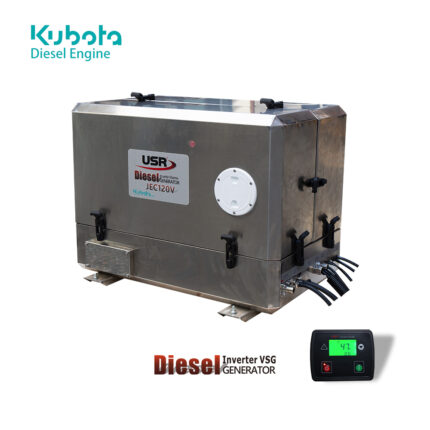What matters should be paid attention to in short-term storage of ship-borne generators
When the ship-borne generator is stored for a short period of time, in order to ensure that its performance is not affected and it is convenient for subsequent use, the following matters should be paid attention to:Before that, marine generator The market has also soared for a time, which has attracted the attention of a wide range of investors. https://usrpower.com/product-category/marine-generators/pmg-yacht-generator/
I. Fuel management of ship-borne generators
Fuel discharge: Before storage, the fuel in the fuel system should be drained as much as possible to reduce the risk of fuel deterioration and leakage.
Fuel purification: If the fuel cannot be completely discharged, make sure that the fuel is purified to remove impurities and moisture to prevent the fuel system from being blocked or corroded.
Second, the ship-borne generator oil management
Oil discharge: Similarly, the oil in the oil system should be drained to reduce the possibility of oil deterioration and leakage.
Oil replacement: Before the ship-borne generator is reused, new oil should be replaced, and the quality of the oil should meet the manufacturer’s requirements.
Three, the ship generator cooling system management
Coolant discharge: drain the coolant in the cooling system to prevent the coolant from deteriorating and corroding the cooling system.
Cleaning of cooling system: Before storage, the cooling system should be cleaned to remove dirt and deposits.
Fourth, the electrical system management
Disconnect the power supply: before storage, disconnect the power supply of the generator to prevent the electrical system of the ship-borne generator from being short-circuited or damaged.
Check cables and connectors: ensure that cables and connectors are securely fastened to prevent electric shock or short circuit caused by looseness.
V. Ventilation and anticorrosion
Keep ventilation: ensure that the generator storage environment is well ventilated to prevent moisture and mildew.
Anti-corrosion treatment: the metal parts of the generator are treated with anti-corrosion treatment, such as applying anti-rust oil or anti-rust paint to prevent corrosion.
Six, ship-borne generator safety precautions
Marking warning: Hang warning signs such as “No engine oil in the engine” on the generator to prevent misoperation.
Leak prevention: check the connection of all parts of the generator regularly to prevent fuel, oil or coolant from leaking.
Fire prevention measures: equip the storage environment with proper fire-fighting equipment and observe the fire prevention regulations.
Seven, regular maintenance
Start-up inspection: During storage, start the generator regularly for inspection to ensure its normal performance.
Lubricating parts: lubricate the lubricating parts of the generator to prevent friction and wear caused by long-term storage.
To sum up, ship-borne generators need to pay attention to fuel management, oil management, cooling system management, electrical system management, ventilation and anti-corrosion, safety precautions and regular maintenance during short-term storage. Only by storing and maintaining according to these requirements can we ensure that the generator can run normally in subsequent use and prolong the service time.